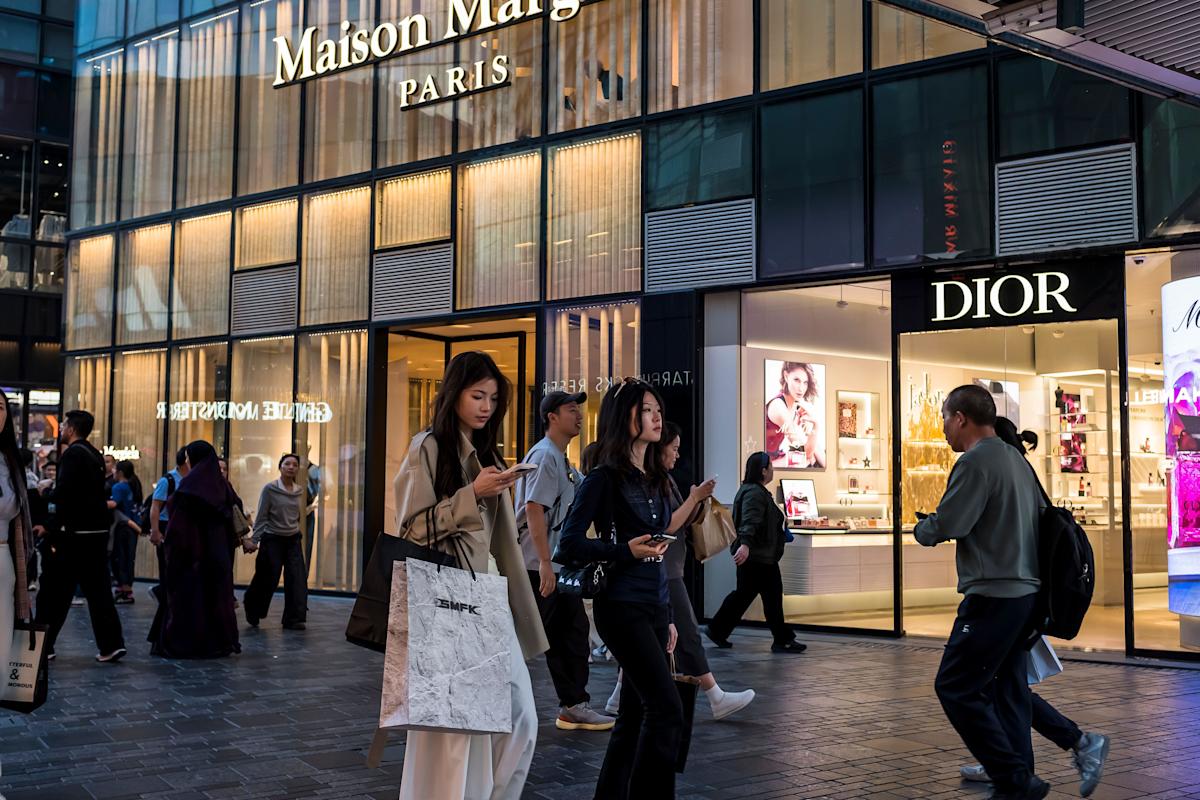The FTSE 100 (^FTSE) and European stocks were higher on Monday as China’s economic growth slowed to its lowest level in a year as its trade war with the US dampened activity.
Gross domestic product (GDP) in the country expanded 4.8% year-on-year in the July to September quarter, according to the latest data from the National Bureau of Statistics (NBS).
The reading matched expectations and was a slowdown from the second quarter of the year, when GDP rose 5.2%. It also came in weaker than the 5.4% growth recorded in the three months to March.
However, on a quarterly basis, GDP grew 1.1% in the third quarter, compared with a forecast 0.8% increase and a revised 1.0% gain in the previous quarter.
It comes ahead of China’s latest four-day “fourth plenum” meeting which starts today, where Communist party leaders are gathering to decide the country’s next five-year plan.
Stocks: Create your watchlist and portfolio
Meanwhile, a major internet outage has hit dozens of popular websites, online games and apps this morning. Users reported problems accessing sites such as Amazon (AMZN), Halifax, Roblox (RBLX), Fortnite and Snapchat (SNAP).
The outage was related to a glitch at Amazon Web Services (AWS), the e-commerce giant’s on-demand cloud computing platform which underpins many online operations.
Downdetector, the platform outage monitor owned by Ookla, said it has seen more than 4 million reports of issues globally on Monday morning – more than double the 1.8 million reports it sees on a full weekday normally.
London’s benchmark index (^FTSE) was 0.3% higher in early trade.
Germany’s DAX (^GDAXI) rose 1.3% and the CAC (^FCHI) in Paris slipped 0.1% into the red.
The pan-European STOXX 600 (^STOXX) was up 0.6%.
Wall Street is set for a positive start as S&P 500 futures (ES=F), Dow futures (YM=F) and Nasdaq futures (NQ=F) were all in the green.
The pound was flat against the US dollar (GBPUSD=X) at 1.3418.
Key companies reporting this week include Tesla, Netflix, Intel, Lloyds and Unilever.
Follow along for live updates throughout the day:
LIVE 12 updates
The price of copper rose 0.3% to $10,638 a tonne on Monday as US president Donald Trump looked to ease tensions with China.
It comes as Trump listed rare earths, fentanyl and soybeans as the top issues ahead of likely trade talks with China this week. He is also set to meet his Chinese Premier Xi Jinping in South Korea later this month.
Speaking to reporters on Air Force One on Sunday, Trump said: “I don’t want them to play the rare earth game with us.”
Cooper was also boosted after Beijing signalled its economy can meet growth targets for 2025.
Download the Yahoo Finance app, available for Apple and Android.
